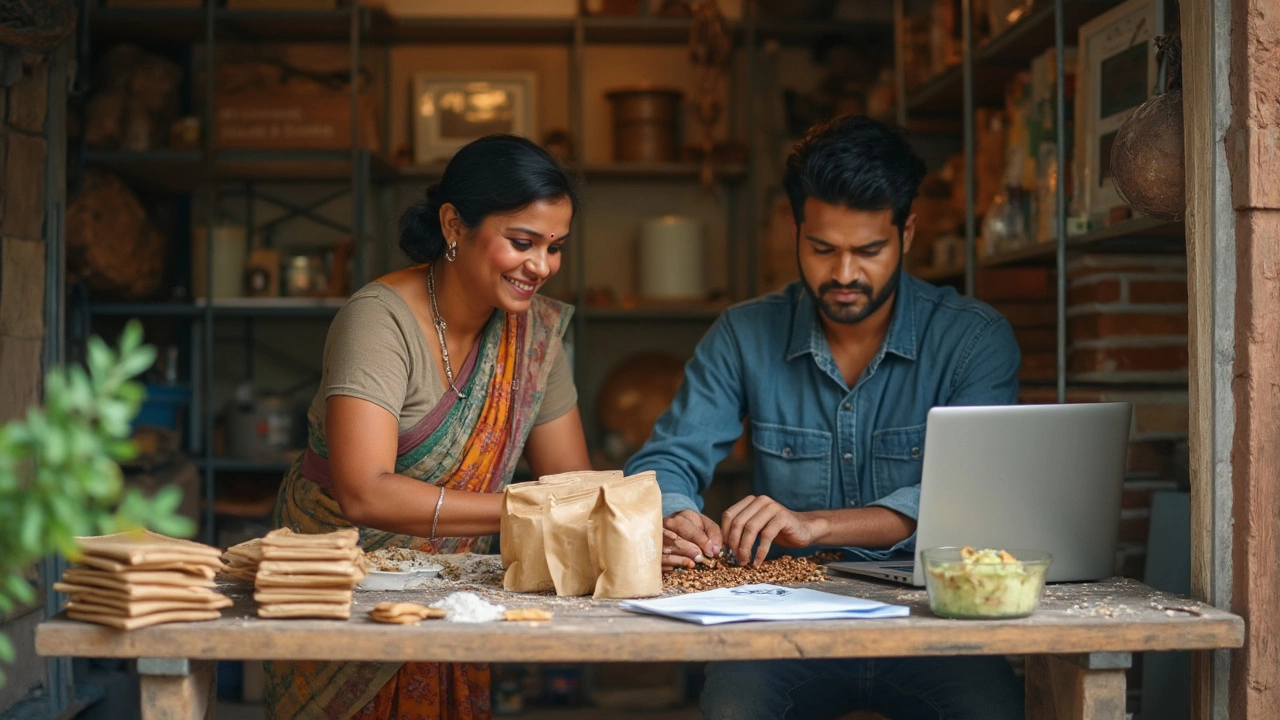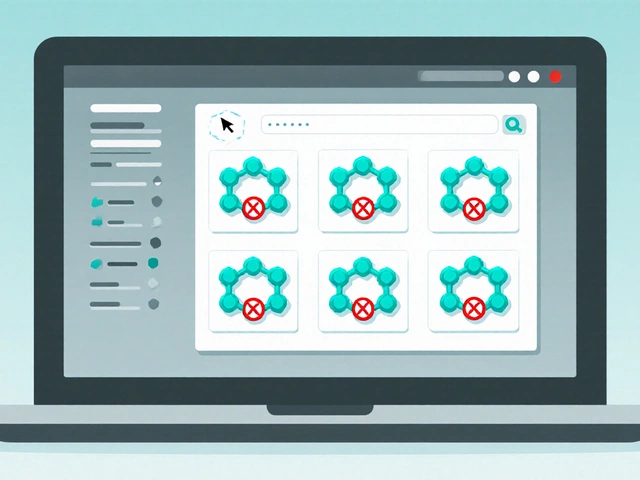If you think starting a manufacturing business means renting a huge warehouse and buying big machines, think again. There are actually a bunch of small-scale manufacturing ideas you can launch from your garage or kitchen with just a few hundred bucks. You don’t even need to quit your job or get fancy licenses for most of these either.
For example, homemade soap, candles, and simple snacks—these all count as small-scale manufacturing. My neighbor tried making customized keychains using a cheap heat press; sold out his first batch to people in our building. It’s that accessible. You just need to pick something in demand, keep things simple, and make sure to start small so you don’t waste money.
- Why Small-Scale Manufacturing Makes Sense
- Easiest Manufacturing Businesses Right Now
- Tools, Space, and Startup Costs
- Common Mistakes and How to Avoid Them
- Tips for Selling Your First Products
Why Small-Scale Manufacturing Makes Sense
Jumping into small scale manufacturing isn’t just easier on your wallet—it’s way more flexible than most folks realize. Unlike trying to open a full-on restaurant or tech startup, you’re not locked into huge leases or massive loans. You can start tiny, learn as you go, and ramp up when you see demand. That freedom is perfect for side hustlers, parents at home, or basically anyone who doesn’t want huge risk.
Here’s something wild: according to a 2024 report from SCORE, small-scale manufacturing jobs in the US have grown by almost 7% in just the last two years! A lot of that comes from people making things like custom pet treats, small crafts, and upcycled home goods—all things you can start in your kitchen or garage without a massive team.
- Low startup costs: You’re often looking at $500 or less to get rolling making soap, candles, or snacks.
- You control the pace: Make five units, make fifty—it’s your call based on your schedule and cash flow.
- Fast feedback loop: Make, sell, tweak. You can change things up if something’s not working, no drama.
- Local market advantage: People love buying local and supporting homemade products, thanks to social media and neighborhood groups.
Let’s check out how some of these businesses compare when it comes to money and time:
| Business Type | Typical Startup Cost | Break-Even Timeline | Skills Needed |
|---|---|---|---|
| Homemade candles | $100 - $200 | 1-3 months | Basic crafting |
| Artisan soaps | $150 - $300 | 2-4 months | Simple chemistry |
| Baked snacks | $50 - $250 | 1-2 months | Baking |
| Custom T-shirts | $200 - $400 | 2-5 months | Design basics |
And here’s a cool bonus: you actually get to see real results. You make something with your hands, sell it, and watch people use it. If you’re tired of screens or meetings, that’s pretty motivating. Plus, there’s way less red tape compared to big-scale factories. You can get making and selling pretty much right away—even if you’ve never run a business before.
Easiest Manufacturing Businesses Right Now
When it comes to the small scale manufacturing scene, a few ideas have been gaining traction for being super simple to start, while offering enough demand that you won’t be stuck with leftover inventory. You don’t need much more than basic tools and a clear plan.
- Candle Making: Melt wax, add fragrance, pour into molds. That’s it. Supplies cost under $200 for your first batches. Handmade candles usually sell for $10-20 each at local markets or online. Natural soy candles are especially trendy now.
- Homemade Soap: Soap sells year-round since everyone uses it. The process can be as easy as melt-and-pour or a bit fancier with cold-process recipes once you get comfortable. Kits are widely available. Small soap makers can earn $500-$1,500 monthly at their own pace.
- Snack Food: If you can make granola, roasted nuts, or simple baked goods, you’re ready. No need to invent a new recipe—trendy packaging is half the battle. Buddy, my dog, once tried to eat my sample granola bars before I could even wrap them. That’s how good these snacks can smell.
- Customized Gifts: Heat presses let you make mugs, T-shirts, tote bags, and keychains with unique designs. A basic machine costs about $150, and plenty of free online tutorials make it almost foolproof. These make awesome birthday, graduation, or thank-you gifts, so demand stays steady all year.
- Bottled Spices or Seasonings: Mix, bottle, label, and you’re done. You can start by packaging basic spices or blend your own. Most customers buy these at farmers markets or small shops, and you only need a food-safe kitchen space.
Check out how these ideas stack up in terms of costs and time to launch:
| Business Type | Starter Cost (USD) | Time to First Sale |
|---|---|---|
| Candle Making | $100-$200 | 1-2 weeks |
| Soap Making | $100-$300 | 2-3 weeks |
| Snack Food | $150-$400 | 2-4 weeks |
| Customized Gifts | $150-$300 | 1 week |
| Bottled Spices | $80-$250 | 1-2 weeks |
These are all hands-on, fun to experiment with, and you don’t have to take a big financial hit to try them out. Just be sure to check any local rules around food or cosmetics if you plan to sell those. Otherwise, all you really need is some space and a bit of grit to get going.

Tools, Space, and Startup Costs
You don’t need a 10,000 square foot factory or scary-looking machines to get started in small scale manufacturing. Most businesses in this area need only basic tools and a small working space—some people work right out of their kitchen, garage, or even a spare bedroom. Think about soap or candle making: you can use your standard stove, simple molds, and affordable mixing tools. For things like custom T-shirts or tote bags, starter heat press machines now go for under $200 on Amazon. If you’re into snacks or jams, a reliable food processor, some pots, and a few storage containers pretty much cover your gear list.
Space-wise, you need enough room to move around and safely store both raw materials and finished products. A sturdy table and a couple of shelves can turn any nook into a real working spot. If you’re making something messier—like woodworking or metal crafts—you’ll need enough ventilation and maybe a spot to keep dust or fumes away from the rest of your home (I learned the hard way that sawdust and Buddy’s fur aren’t a good combo).
Let’s talk real numbers. Most small-scale manufacturing startups launch with $500 to $2,000—no joke. Don’t just take my word for it; data from the National Small Business Association showed nearly half of all home-based makers started with less than $5,000. Here’s a basic snapshot of what you might spend to get going:
| Business Type | Average Startup Cost (USD) | Essential Tools |
|---|---|---|
| Soap/Candle Making | $300-$800 | Stovetop, molds, mixer, thermometer, basic packaging |
| T-shirts/Cloth Printing | $500-$1,200 | Heat press, blank shirts, transfer paper, computer |
| Snacks & Jams | $400-$1,000 | Pots, mixer, food processor, jars, labels |
| Woodcrafts | $600-$2,000 | Basic saws, clamps, sander, worktable |
One major tip: start lean. Buy only what you need to make your first 10 or 20 products. If you grow, you can always upgrade later. A lot of folks get stuck by overbuying tools they never use or by renting expensive workspaces before they even have customers. Borrow tools, check out local makerspaces, and look for used gear on Craigslist or Facebook Marketplace. It’s how I got my first heat press for half price—and it worked just fine.
Common Mistakes and How to Avoid Them
Jumping into small scale manufacturing can be exciting, but lots of newbies mess up in similar ways. Skipping these mistakes gives you way better odds of making money and not bailing out after a few months.
One big mistake: making too much product before you’ve found customers. It's tempting to fill up your whole garage, but if you don’t have buyers lined up, you’re just stacking up risk. Stick with small batches until you know what people actually want.
Another trap—trying to do everything yourself. Look, I get the hustle, but you don’t have to design logos, run social media, manage accounts, and do production all solo. There are plenty of freelancers online who’ll handle parts of the business for pretty cheap.
Ignoring local laws and safety rules is risky too. Even basic stuff like homemade snacks or candles might need approvals or certain labels. Buddy once ate a bar of my homemade soap (don’t ask), and that’s when I realized I hadn’t checked basic rules for selling bath products. Lesson learned: double-check what you can actually sell in your area.
- Making assumptions instead of asking customers. Join online groups and ask real buyers what they like. You’ll dodge a lot of wasted effort.
- Buying too much gear up front. Start with the lowest investment possible. Upgrade once you have actual sales.
- Neglecting packaging and presentation. People do judge by the cover, especially with homemade goods.
- Overlooking online selling. Markets like Etsy and local Facebook groups can move your product way faster than just word of mouth.
Here’s a quick table with stats from a 2023 survey (SmallBizTrends) showing where most new manufacturing side hustles hit trouble:
| Mistake | % Reporting This as a Problem |
|---|---|
| Overestimating demand | 41% |
| Ignoring costs of packaging/shipping | 32% |
| Running out of cash | 28% |
| Regulation/safety slip-ups | 19% |
If you can avoid these rookie mistakes, you’ve already beaten about half the folks who give up on their small-scale manufacturing dreams in the first year. Start simple, listen to feedback, and keep costs tight until you’re sure orders are rolling in.

Tips for Selling Your First Products
Getting your first sales is the hardest part, but there are a few ways to make it easier, especially with small scale manufacturing. Start local—people you know are more likely to support you, and you can get honest feedback. Bring your samples to friends, neighbors, or local events. Something about having a product in hand makes it real, and folks are more likely to buy when they can touch or taste what you made.
Don’t waste weeks building a fancy website right away. Try simple online platforms like WhatsApp, Facebook Marketplace, or even local groups on Instagram to show off your products. Snap clear, bright photos—natural light from a window works great. Short videos showing your production process or packing orders can also build trust.
Pricing trips a lot of people up. First, figure out exactly what it costs to make one item—materials, packaging, even your time (don’t ignore that). Add your margin, but stay realistic. Check what similar products are selling for in your area so you don’t scare off buyers with high prices or accidentally give stuff away.
- Bring freebies or samples where people already gather (think gyms for healthy snacks, or markets for candles and soaps).
- If you’re making food (like granola or homemade dips), focus on freshness and make that your selling point—people love ‘made today’ or ‘no preservatives’ labels.
- Offer limited-time discounts for first customers—people love a bargain and it can help you build word of mouth.
- Ask for feedback and actually use it. If buyers say your soap smells too strong, tone it down for the next batch.
- Don’t forget to collect contacts—emails, phone numbers, or even social follows—so you can reach out about new batches or flavors.
The best marketing is an honest story: share why you started, what goes into your process, and maybe even the flops or funny mistakes along the way. People love supporting small businesses that feel personal and real. Just stay consistent, take every bit of feedback seriously, and remember—getting one happy customer is better than chasing a hundred who don’t care.











Write a comment